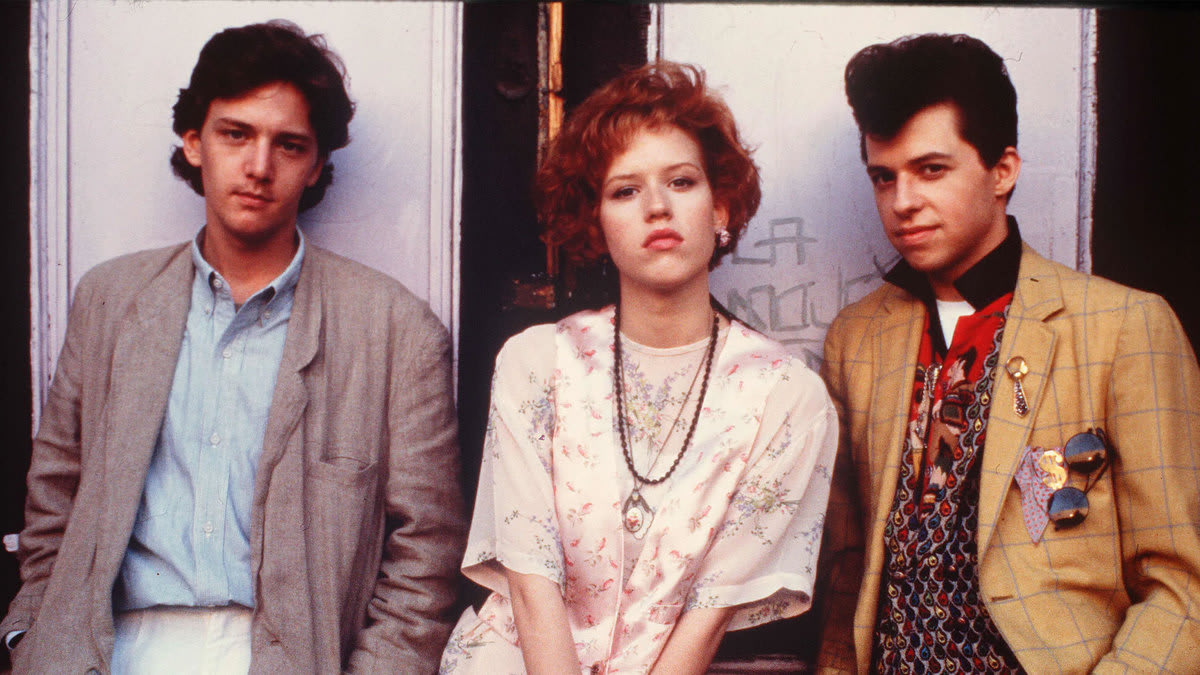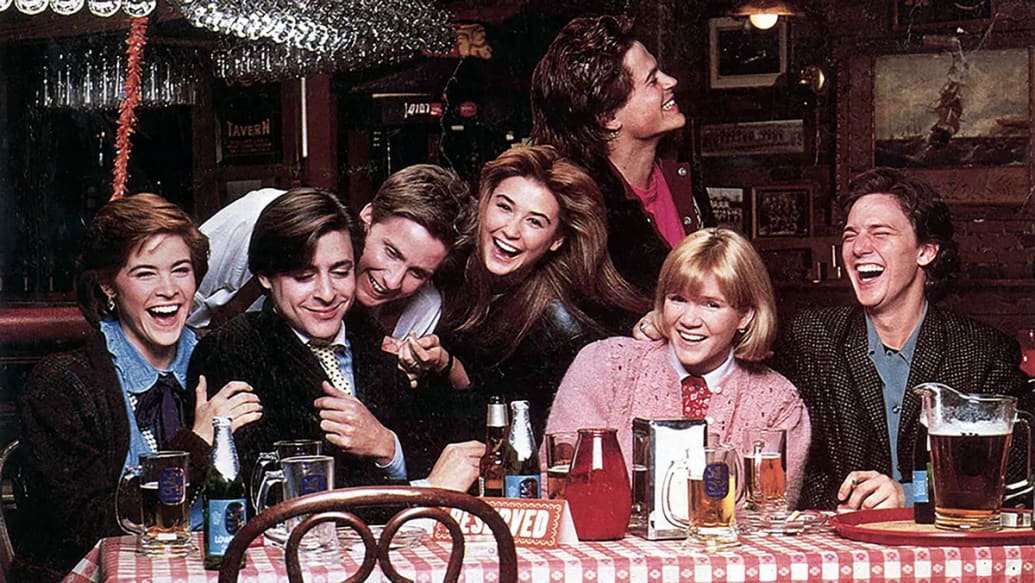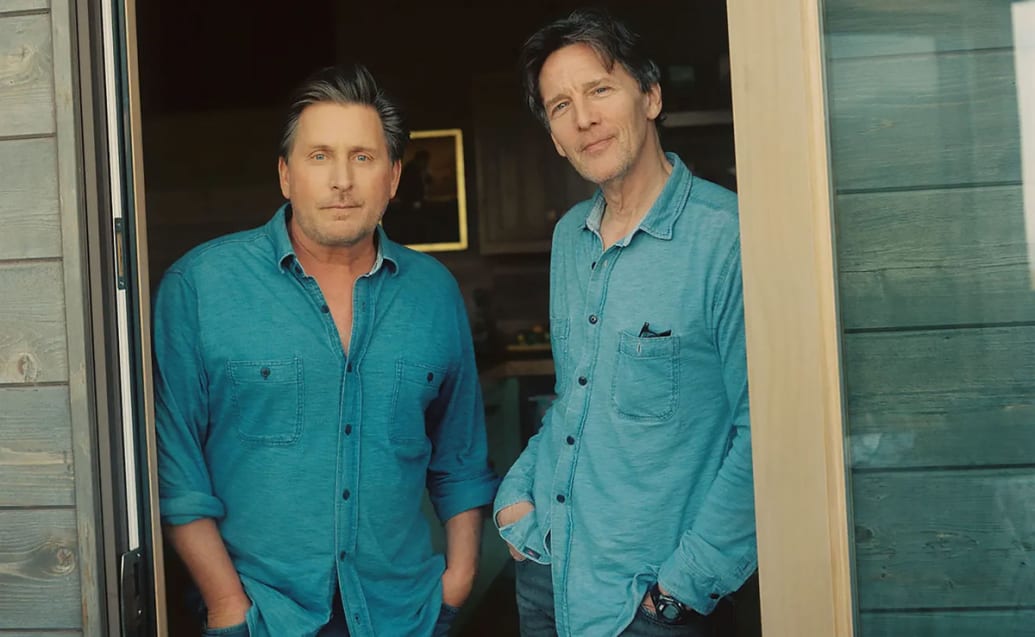There may still be debate about who exactly the Brat Pack members were (Ally Sheedy? Yes. Kiefer Sutherland? No), but there’s little debate about the cultural impact of this informal group and its catchy moniker, first coined by David Blum in a 1985 New York cover story.
In layman’s terms, the term “Brat Pack” was a cheeky play on the Rat Pack and a catch-all term for a group of young actors taking Hollywood by storm. But to these up-and-coming artists, the nickname was more of a humiliating curse than an endearing blessing.
Forty years after their reputation and persona were established, one of the group’s leading figures, Andrew McCarthy, is revisiting their legacy and their impact on himself in the feature-length documentary “Bratz,” which premiered at this year’s TriBeCa Film Festival ahead of its June 13 premiere on Hulu. The film chronicles this whirlwind phenomenon and the difficult process of looking back and learning to embrace the good and let go of the bad.
To McCarthy, the Brat Pack was shorthand for awful. “The Brat Pack gave the impression that we were frivolous, that we didn’t take ourselves seriously,” McCarthy writes in Brat. And by “it,” he means his craft. Along with Sheedy, Emilio Estevez, Rob Lowe, Judd Nelson, and Molly Ringwald (and Lea Thompson’s self-described “near-Brat Pack” comrades), McCarthy was part of a group of twenty-something stars who represented a major change in Hollywood.
St. Elmo’s Fire cast
Columbia Pictures
Spearheading a body of films explicitly focused on the personal, social, and emotional lives of teenagers, they were icons of a new generation, and the works that defined their early careers — Sixteen Candles, The Breakfast Club, St. Elmo’s Fire, Pretty in Pink, About Last Night… — came to define 1980s youth culture. When McCarthy likens The Breakfast Club to The Catcher in the Rye in the documentary, the comparison is strikingly apt, because for kids of a certain age (and kids who came after), the Brat Pack’s signature films were representations of the reality of youth.
But in McCarthy’s view, all of that was tainted and overshadowed by Blum’s magazine feature, which started out as a profile on Estevez and morphed into its final form after the author and his subject spent a night on the town together. McCarthy goes to great lengths in Bratz to explain to the camera and his interviewees that from the moment the Brat Pack moniker was coined, it immediately entered the zeitgeist and, as a result, changed the way everyone inside and outside the industry viewed him.
None of this was good for him, as he and his peers were reduced to frivolous newbies more interested in partying than performing. Whether that opinion was correct (or whether people even had it) soon became secondary to the fact that he felt disrespected (and the pressure to overcome it), which negatively altered how he viewed himself and his destiny.
Emilio Estevez and Andrew McCarthy
ABC News Studio
Packed with film clips and era-defining songs, “Brats” is a first-person film in which McCarthy reflects on his successes and failures, inspiring him to reunite with as many of his fellow Brat Packers as he can who are willing to join. Sadly, Ringwald and Nelson won’t be there, and no one mentions Anthony Michael Hall, which seems like a little sacrilege. But the others are up for it, including Estevez, who says he avoided retrospective screenings of ’80s hits for years because the Brat Pack’s reputation thwarted his ambitions of becoming a famous actor and director like his father.
When asked if he would erase the word from history if he could, Estevez acknowledged, “That’s a difficult question to answer, because you only know what you know. Has it helped us? Probably, but in the long run, I don’t think it has. I think it has done more harm than good.”
Sheedy was similarly hurt by the nickname, as was Timothy Hutton, who was dubbed “Godfather of the Brat Pack” for his Oscar-winning performance in the 1980s film Normal People, who thought it was “cheesy.” But as McCarthy’s research progressed, he increasingly recognized and accepted another perspective on the Brat Pack. Demi Moore seemed hardly fazed by the nickname association, her statement that “we were babies!” suggests that their negative reaction had a lot to do with immaturity, especially considering how competitive and image-driven the business is. Rowe is more optimistic about the period as a whole, reminding McCarthy that being fondly remembered for something more than 30 years later must mean something to people.
Demi Moore and Andrew McCarthy
ABC News Studio
In the final episode of Bratz, McCarthy has an extended conversation with Blum, who acknowledges that he lightly lampooned McCarthy and his ilk in the magazine article, but refuses to apologize for the article and the terminology, which he considers to be an accurate and amusing portrayal of a public figure at a precise time.
“Do you think I could have been nicer?” McCarthy asked at the end of our conversation. Unfortunately, his plea for repentance went unfulfilled. Though he understands why McCarthy and co. hated it, Blum spoke candidly about the pride he felt, and still feels, in the Brat Pack title. Moreover, as he stated, his article was about attention-seeking adults and the behavior they chose to display in his presence, and therefore any backlash was “collateral damage” to him.
In conversations with Jon Cryer, Malcolm Gladwell, Bret Easton Ellis, author Susanna Gora, and Indiewire critic Kate Erbland, McCarthy gains a deeper understanding of the formative impact Brat Pack films had on American kids, and by extension, culture at large. As Brat convincingly argues, the Brat Pack remains a beloved gateway for boys and girls into adolescence and into teenage years, and as such, the enduring value of the Brat Pack outweighs any (potential) ugliness of the Brat Pack designation.
Even though it derailed the dreams he once held, McCarthy seems to find some comfort in his membership in this exclusive club (which didn’t actually exist, since they never spent time together or even knew each other) because he understands that it has made him and his “branded” comrades what all movie actors aspire to: immortality.




